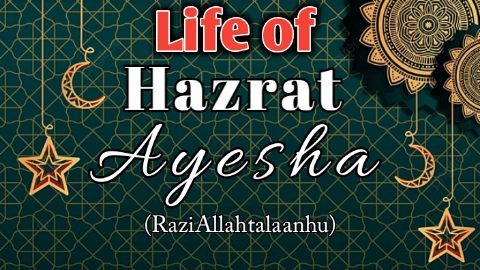
Hazrat Ayesha razi allah tala anhu, also known as Aisha, was one of the Prophet Muhammad’s (Peace Be Upon Him) wives and a significant figure in Islam. Her life and contributions are integral to the religion’s history and development.
Early Life:
Hazrat Ayesha (Razi Allah Tala Anhu) was born in Mecca around 613 CE to Abu Bakr, one of the Prophet’s closest companions and the first Caliph of Islam, and Umm Ruman. Her family was renowned for their intelligence and piety and dedication to Islam. Ayesha grew up in a society transitioning from paganism to monotheism under the guidance of Prophet Muhammad.
Marriage to Prophet Muhammad:
At a young age, Hazrat Ayesha (Razi Allah Tala Anhu) was betrothed to Prophet Muhammad and eventually married him when she was around nine years old. Their marriage was significant for several reasons, including strengthening family ties and setting an example for marital relations in Islam. Hazrat Ayesha (Razi Allah Tala Anhu) became a devoted wife, accompanying the Prophet on various expeditions and learning from his teachings.
Scholarship and Knowledge:
Hazrat Aisha (Razi Allah Tala Anhu) was known for her exceptional intelligence, wisdom, and scholarly pursuits. She became a prominent scholar, offering insights into Islamic jurisprudence, Hadith (the sayings and actions of Prophet Muhammad), and various aspects of daily life during the time of the Prophet. Her narrations of Hadith are highly respected and are found in collections revered by Muslims worldwide.
Political Involvement:
Following Prophet Muhammad’s death, Hazrat Aisha (Razi Allah Tala Anhu) played a significant role in early Islamic politics. She supported the leadership of Abu Bakr, her father, during the contentious time of the caliphate’s succession. Her influence and leadership during this period are notable, as she advocated for justice and adherence to the principles set by the Prophet.
Contributions to Islamic Jurisprudence:
Hazrat Aisha (Razi Allah Tala Anhu) knowledge and understanding of Islamic law were extensive. She provided guidance and counsel to both men and women on matters related to religious practices, social conduct, and legal issues. Her contributions to Islamic jurisprudence remain influential in shaping various aspects of Islamic law.
Legacy and Influence:
Hazrat Aisha (Razi Allah Tala anhu) is revered by Muslims for her contributions and, knowledge and dedication to Islam. Her teachings and wisdom continue to be a source of guidance for Muslims seeking spiritual, moral, and legal direction. Her life serves as an inspiration for women in Islam, emphasizing the importance of education, leadership, and devotion to faith.
Conclusion:
Hazrat Aisha (Razi Allah Tala anhu) remains an iconic figure in Islamic history, admired for her intelligence, scholarship, and commitment to the teachings of Prophet Muhammad. Her life exemplifies the virtues of faith, knowledge, and service to humanity, leaving an indelible mark on Islam’s development and the Muslim community‘s values and principles.